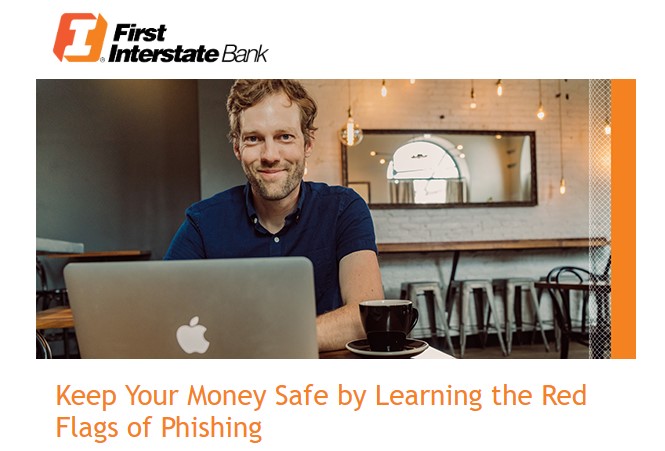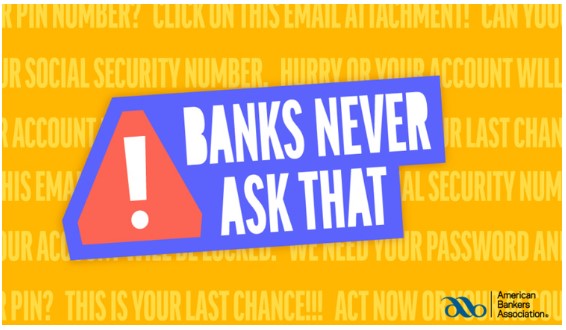
Every day, regular people like you lose their hard-earned money to online phishing scams.
Phishing is a type of online scam where criminals make fraudulent emails, phone calls, and texts that appear to come from a legitimate bank. The communication is designed to trick you into entering confidential information (like account numbers, passwords, PINs, or birthdays) into a fake website by clicking on a link, or to tell it to someone imitating your bank on the phone.
Don’t fall for fake. Use these tips from the American Bankers Association to learn how to spot shady texts, emails, and phone calls by knowing the things your bank would never ask.
- Slow down—think before you act. Acting too quickly when you receive phishing email, text messages, or phone calls can result in unintentionally giving scammers access to your bank account — and your money. Scammers want you to feel confused and rushed, which is always a red flag. Banks will never threaten you into responding or use high-pressure tactics.
- Never share personal information. Your bank will never ask for your PIN, password, SSN, or one-time login code in a text, email, or phone call. If you receive a message asking for personal information, it’s a scam.
- Avoid clicking suspicious links. If an email pressures you to click a link — whether it’s to verify your login credentials or make a payment, you can be sure it’s a scam. Banks never ask you to do that.
- Watch for attachments and typos. Your bank will never send attachments like a PDF in an unexpected email or text. Misspellings and poor grammar are also warning signs of a phishing scam.
- Be skeptical. In the same way defensive driving prevents car accidents, always treating incoming email as a potential risk will protect you from scams. Fraudulent emails can appear very convincing, using official language and logos, and even similar URLs.
- Hang up—even if it sounds legit. Whether it’s a scammer impersonating your bank or a real call, stay safe by ending unexpected calls and dialing the number on the back of your bank card instead.

Learn more at BanksNeverAskThat.com, follow #BanksNeverAskThat on social media for quick tips, or check this in-depth guide on how to spot phishing and what to do if you fall prey.
